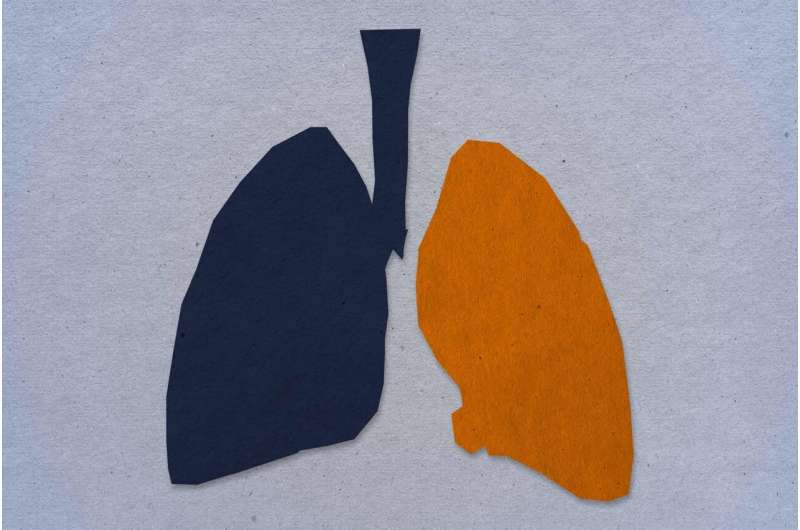This article has been reviewed according to Science X's editorial process and policies. Editors have highlighted the following attributes while ensuring the content's credibility:
fact-checked
peer-reviewed publication
trusted source
proofread
Lung transplant discovery could improve survival rates

University of Virginia School of Medicine researchers have identified a potential way to improve the survival rate of lung transplant patients.
For many patients with advanced or end-stage respiratory diseases, lung transplants are the only treatment option. Patient survival rates after lung transplants have improved in recent years, but still lag far behind the survival rates for other organ transplant patients.
That has doctors and researchers eager to find ways to improve the process and prevent or reduce post-transplant issues.
A team, led by Swapnil K. Sonkusare of UVA's Department of Molecular Physiology and Biological Physics, has identified cellular changes within the lung following a transplant that contribute to an "ischemia-reperfusion injury," a major cause of organ rejection and death after transplant. The injury occurs when blood supply returns to tissue after it has undergone a period without oxygen.
Sonkusare and his team found that by targeting the underlying biological processes, doctors may be able to prevent ischemia-reperfusion injuries.
The findings are published in the journal Science Signaling.
"Our collaborative studies with Dr. Victor Laubach from [UVA's Department of] Surgery show a new mechanism for lung ischemia-reperfusion injury," said Sonkusare, of UVA's Robert M. Berne Cardiovascular Research Center. "This mechanism could be targeted to improve the clinical success of lung transplantation."
Better lung transplants
Ischemia-reperfusion injury is a major cause of what is known as "primary graft dysfunction," the leading cause of death within 30 days of a lung transplant. It also can lead to chronic allograft dysfunction, the leading cause of death a year or more after transplant. Half of lung transplant recipients develop chronic allograft dysfunction within five years of transplant, according to the National Institutes of Health.
At least some degree of ischemia-reperfusion injury is inevitable for patients who have organ transplants. Tissues are traumatized when they are disconnected from their original blood supply and reconnected to a new one. For lung transplants, this trauma can result in harmful inflammation, leaky blood vessels, damage to the tiny sacs responsible for oxygen exchange and other problems.
While the phenomenon of ischemia-reperfusion injury is well known, researchers have struggled to understand the underlying causes. Sonkusare's new work provides answers, identifying a particular pathway of biological processes triggered by ischemia-reperfusion. These processes occurred in endothelial cells that line blood vessels in the lung and resulted in immune cell activation leading to lung injury, UVA researchers say.
The scientists found that blocking key steps in this pathway prevented inflammation and lung damage in lab mice, suggesting a promising approach for preventing the same problems in human transplant recipients, though much more research will be needed.
"Our collaborative research with Dr. Laubach has revealed the cellular mechanisms for lung ischemia-reperfusion injury," Sonkusare said. "We are currently testing the effectiveness of drug molecules that block these mechanisms in various models of lung injury after transplantation, with the ultimate goal of improving the success rate of lung transplantation."
The research team consisted of Maniselvan Kuppusamy, Huy Q. Ta, Hannah N. Davenport, Abhishek Bazaz, Astha Kulshrestha, Zdravka Daneva, Yen-Lin Chen, Philip W. Carrott, Laubach and Sonkusare.
More information: Maniselvan Kuppusamy et al, Purinergic P2Y2 receptor–induced activation of endothelial TRPV4 channels mediates lung ischemia-reperfusion injury, Science Signaling (2023). DOI: 10.1126/scisignal.adg1553



















